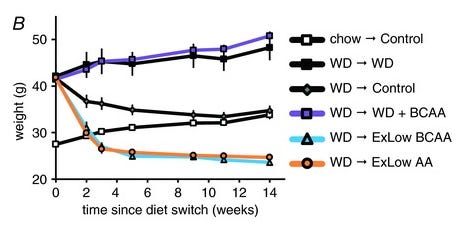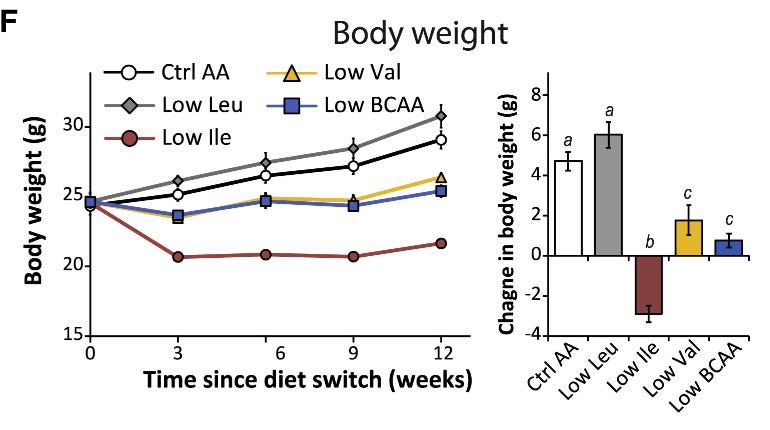May I repeat that I like scientific evidence?
Still, I believe that tests on animals "studies, mostly in mice" are just one step.
However, the human genome is different from animals. We are omnivores.
mice are omnivores.
But you'll be pleased to learn the lab that did that study in question is regularly publishing combined studies with a human trial arm. Of course you can't directly control the chow of people for a lifetime like you can with mice, so the studies are usually smaller, less specific, less long lasting, or all 3.
e.g.https://www.cell.com/cell-reports/pdf/S2211-1247%2816%2930733-1.pdf
we analyzed data from a randomized controlled trial (RCT) we
conducted to determine the health effects of PR (protein restriction) without calorie
restriction in 38 middle-aged overweight and mildly obese (base-
line BMI 30 kg/m 2 ) human males.
The 19 volunteers random-
ized to PR were fed customized isocaloric 7%–9% protein
diets for an average of 43 days, while the 19 control subjects
consumed their usual diets, consisting of 50% more protein
per day (Table S1). We measured physical parameters and
collected blood for metabolic analysis in patients after an over-
night fast, both at baseline and at a follow-up visit at the end of
the trial. As this was an RCT, some baseline parameters were ex-
pected to vary between the control and PR groups; our analysis
therefore focused on the changes within each diet group (within-
group p) and the differences between the changes seen in each
group (among-group p) (Tables 1 and 2).
Humans eating isocaloric PR diets, but not those in the control
group, showed very similar effects to mice placed on a PR diet,
with a significant
decrease in body weight (2.6 kg), fat mass,
and BMI (Table 1). We also observed a significant decrease in
fasting blood glucose levels, although there was no effect of
PR on the level of insulin; however, we observed a doubling of
levels of the insulin-sensitizing hormone FGF21 in subjects fed
a PR diet, with no change in FGF21 levels in the control group
(Table 2); a similar increase in FGF21 was previously observed
in humans fed a more severe PR diet (Laeger et al., 2014a). We
also observed a significant decrease in plasma levels of the three
branched-chain amino acids (BCAAs)—leucine, isoleucine, and
valine—that are associated with insulin-resistance in humans


